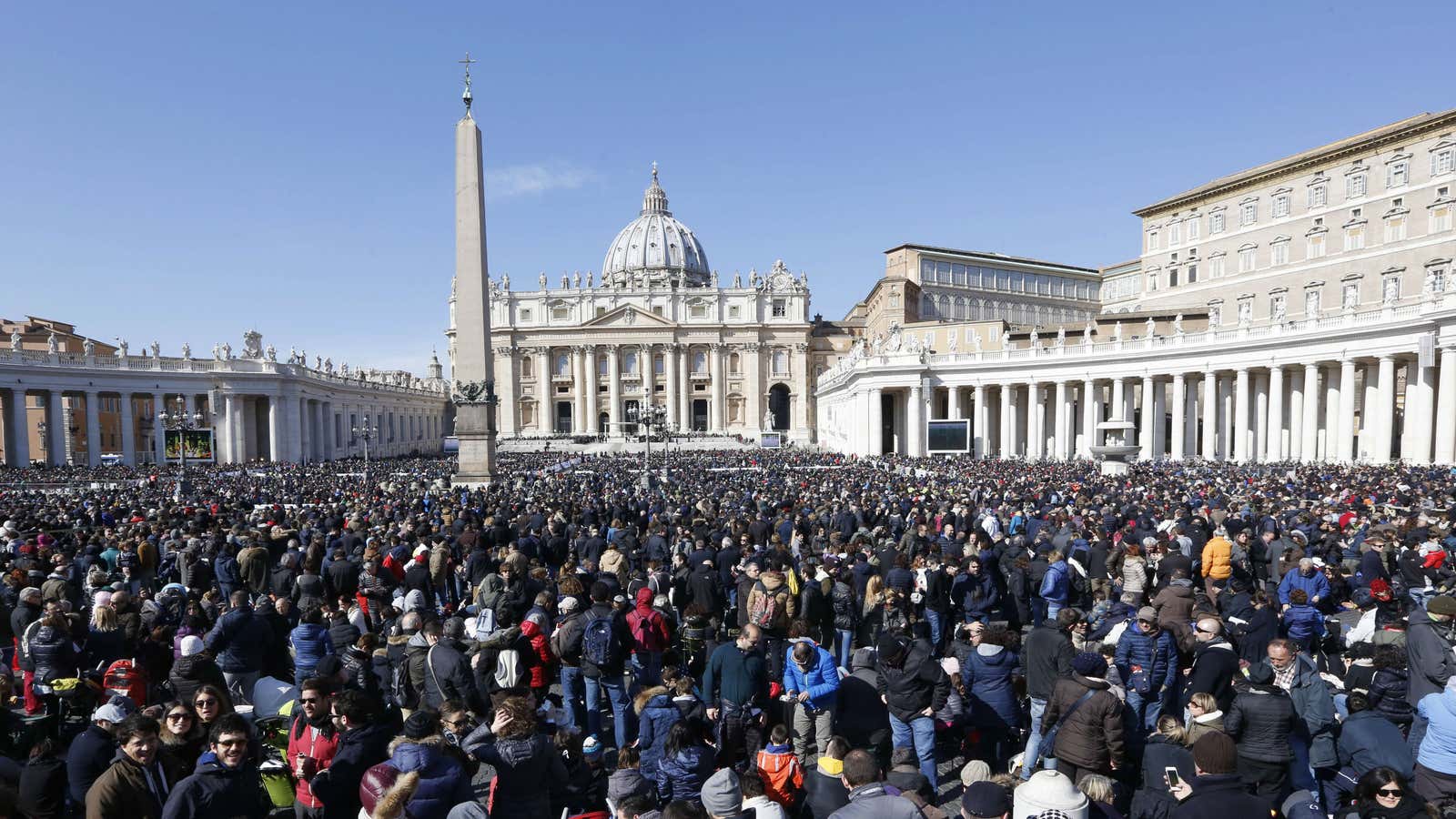On the second anniversary of his election, pope Francis has just promulgated a universal extraordinary jubilee: beginning Dec. 8 (the day when Catholics celebrate the Immaculate conception), the “holy” doors of St. Peter’s in Rome will be opened to welcome repenting devotees and grant them God’s pardon.
The Jubilee, the “Holy Year,” explains the Vatican Insider:
is the year of the remission of sins and of suffering from sin, of reconciliation, of conversion and of sacramental penance.
The Jubilee is an institution Christianity shares with Judaism, and has its roots in the Old Testament.
In practical terms, the Jubilee is a year during which a devotee performs a pilgrimage to a sacred site to obtain pardon of all sins. For Catholics, that sacred site happens to be the Vatican.
While the sacred texts set the frequency of the Jubilee to every 50 years, it is often indicted every 25: it’s been the 20th century, when ordinary jubilees occurred in 1925, 1950, 1975, and 2000. There are, however, exceptional circumstances when a so-called “extraordinary” Jubilee happens—this year would be one of them (there were two last century, in 1933 and 1983).
This should be cause for celebration for Italians of any religion: last jubilee, in 2000, recorded an unprecedented tourism boom in Italy, with a total 221.7 million rooms booked in Italian hotels, an increase of nearly 5% compared to the previous year, and an overall 22% increase in income from tourism (link in Italian), which accounts for about 10% of Italy’s GDP.
In the city of Rome, particularly, there were over 30% more tourists staying at five-star hotels compared to the previous year, and an impressive flow of visitors from Catholic countries such as Ireland (35% more visitors than 1999) and Poland (72% increase, link in Italian).
If those numbers are anything to go by, Italy—likely to benefit from an increased number of tourists generated by a cheaper euro as well as by the world Expo opening in May in Milan—should really thank the lord, or at least her man in Rome.
